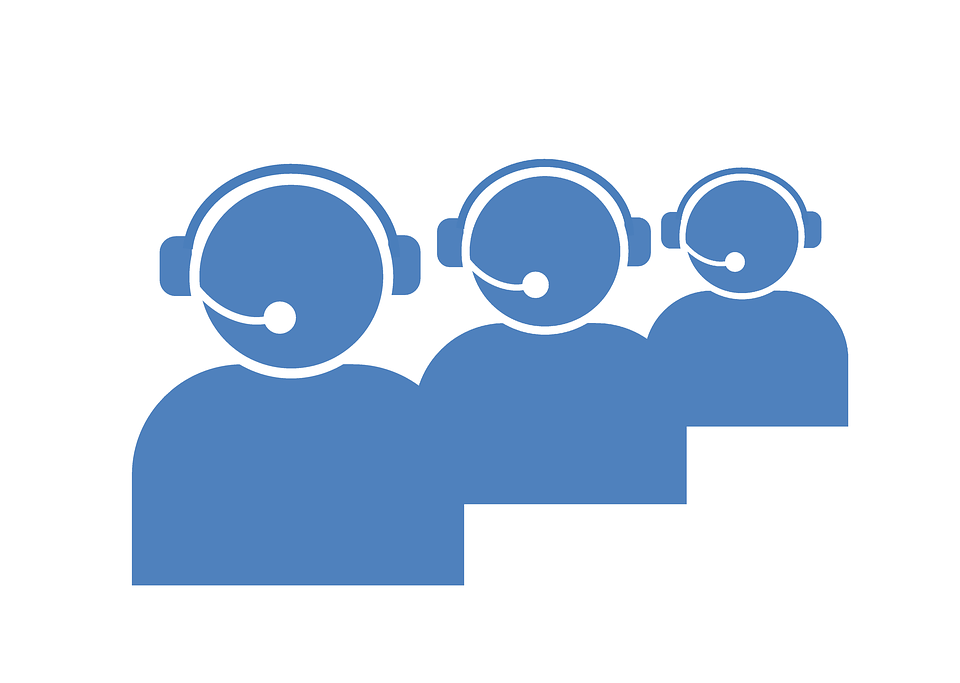
That’s not tech support. It’s a scam
It’s not Microsoft…and it’s not going to end well for you unless you ignore the call or hang up.
Lee and Lauren Cooper have stopped counting the number of customers who have fallen for what we consumer advocates call “the tech support scam.” The principals of your #WiseChoice for computer sales and services, Cooper Systems, just shake their heads at how many times they’ve warned about the scam, even with customers who have been victimized more than once.
“Customers have told us that someone foreign, usually from India representing themselves as ‘Microsoft,’ called them and said their computer had been hacked into,” said Lee Cooper. “They would talk people into downloading software to allow them to remotely access their computer. The Microsoft impostor would then claim the consumer’s computer is riddled with thousands of viruses and for a certain fee, the computer viruses could be removed. Then the impostor would then try to sell 3-year computer support packages for thousands of dollars. If the customer says no, these hackers completely lock up the computer.”
Cooper said there’s another version of the scam, one that also uses the Microsoft label. “The caller claims he’s from Microsoft and that the consumer’s Windows license key has expired (which never expires. It’s good for the life of the device). The impostor proceeds to charge the consumer four times what a normal valid license for Windows costs to remedy said problem. The truth is, there never was a problem. In reality, all the impostor does is take the consumer’s money and infect his or her computer.”
The Federal Trade Commission (FTC) has started cracking down — and tracking down — the scammers behind the tech support scams. It investigated and charged Parmjit Singh Brar, Genius Technologies LLC and Avangatee Services LLC with violating the FTC Act and the Telemarketing Sales Rule.
“The defendants worked with Indian telemarketers to trick older Americans into buying bogus technical support services,” wrote Frank Dorman of the FTC’s Office of Public Affairs in a February 22 news release. “Specifically, the defendants set up business accounts for the telemarketers, collected and deposited consumer payments and provided a gloss of legitimacy to the scheme.”
The scheme, however, is easy to thwart. Everyone, especially seniors, simply need to know that no tech support representatives from any computer company — Microsoft, Norton, Dell, Apple, whatever — will ever initiate a call to you about your computer, and there’s no way they can know ahead of time if there’s something wrong with your device.
“The number one thing people can do to prevent this from happening is to never ever let anyone remote into your machine for any reason,” said both Lee and Lauren Cooper. “Microsoft will never call you for any reason, EVER.
“If you do become a victim to these types of scams, the minute you realize it, change every password to every account, call your credit card companies and carry your computer to a reputable computer repair company like Cooper Systems for inspection and, if necessary, virus and malware removal. If they call you again (which will more likely than not happen) tell them you are going to call the police, and you know they are fraudulent. Nine times out of ten, they will hang up before you get the word ‘police’ out of your mouth.
“Another good way to help protect yourself is keeping up-to-date with a current, reliable antivirus and spyware program, such as legitimate Norton Security.”
It’s also good to remember my standing advice regarding unsolicited phone calls: never answer calls you do not recognize on your caller ID, even if the area code is familiar and especially if it is your own number showing up. The more you answer these calls, the more they will increase because you are confirming to the scammers’ robo-dialers that yours is a legitimate, working phone number. The less often you answer these calls, the more they will eventually taper off and disappear.
That’s true ‘tech support’ you can take to the bank, instead of allowing a foreign telemarketer pretending to be Microsoft take your money to his.
Copyright 2018 Wise Choices TM. All rights reserved.